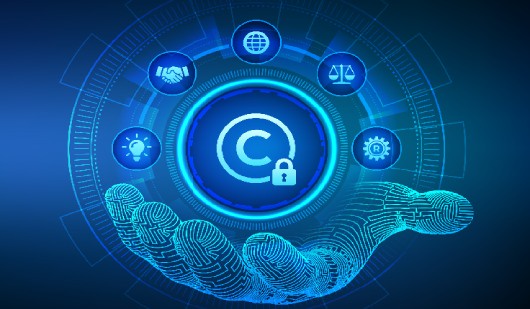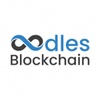Generative AI has captivated the world with its compelling outputs across various mediums like images, text, and music. Blockchain appears as a solution to this problem. Nevertheless, AI also poses an intellectual property (IP) risk, which may put organisations in legal trouble. This article explores how blockchain application development can address this problem.
The Generative AI and IP Dilemma
Platforms for generative AI appear to generate completely original outputs at first glance. All the same, they mostly depend on large language models (LLMs) that gather publicly accessible data from the internet. These systems examine data patterns and use them to produce responses to user queries.
These programs are designed to craft code, text, music, and art using data largely sourced from humans, often protected by copyrights or other legal means. Consequently, this method brings forth legal risks, particularly concerning potential intellectual property infringement.
Safeguarding the IP of data utilized in training generative AI platforms is a complex task. Additionally, it is crucial to ensure that companies avoid infringing on others’ IPs while using the platform to generate new content. Here, blockchain emerges as a potential solution for securing IPs.
There’s a pervasive uncertainty regarding the eligibility of AI-generated content for copyright protection. Global scepticism regarding granting copyright to non-human works is resulting from it. Legal questions about the legitimacy of AI-generated output add to this ambiguity. Authorities are penalizing companies for allegedly unlawful use of AI-based technology.
Ownership complexities further complicate matters. Human language inputs significantly influence AI output, raising questions about rightful ownership. Additionally, the striking resemblance of AI-generated content to original data and the replication of famous artists’ styles add layers of uncertainty.
Suggested Read | Generative AI and Blockchain | Changing the Business Landscape
How Blockchain Can Solve Intellectual Property Problem of Generative AI
Blockchain technology offers a promising avenue to address the challenges of intellectual property created by generative AI. Organizations using generative AI can leverage blockchain to gain visibility into the content creation process. They are able to create a permanent historical record of the origin of the data.
Controlled Usage
Creators can integrate IP assets into a blockchain as non-fungible tokens (NFTs) with embedded smart contracts that establish clear usage rules. These tokens can give AI systems like ChatGPT direct access to rights, such as those pertaining to free usage, attribution requirements, or compensation terms for reuse. This approach lowers the danger of intellectual property (IP) infringement or misuse while ensuring exact control over how AI interacts with confidential data.
Unintended IP Infringements
Additionally, a blockchain-based IP system could mitigate unintentional IP infringements. Through blockchain’s programmable nature, a system can be established wherein each utilization or transaction of AI-generated content necessitates a corresponding payment. This setup ensures that creators automatically receive compensation whenever their content is used by machine learning models (LLMs).
Organizations create a transparent and immutable ledger of their content by storing and tagging IP before AI access. This proactive approach minimizes the chances of unintentionally replicating copyrighted materials from competitors.
Benefits of Blockchain Technology for Intellectual Property Created using Generative AI
Here is how utilizing blockchain can address challenges related to AI-related intellectual property rights:
Legal Compliance and Dispute Resolution
Blockchain creates a trademark-like protection to ensure that the content is credited accurately to its true creators. The use of blockchain in conjunction with generative AI establishes a robust groundwork for compliance with legal frameworks.
Blockchain technology provides a concrete foundation for resolving disputes by offering an immutable record of transactions and content ownership. It streamlines the resolution of potential IP disputes.
Digital Branding and Authenticity Verification
Blockchain integration into content creation allows human creators to authenticate their work’s origin. Creators can establish verifiable proof of ownership through digital signing and authentication methods. This ensures that their creations are rightfully attributed to them.
Check It Out | Blockchain for Advanced and Secure Digital Identity Management
Summing Up
The integration of blockchain technology with generative AI presents a promising solution to the complex intellectual property challenges that arise in the realm of AI-generated content. Embracing blockchain with generative AI can enhance legal compliance and dispute resolution and establish a framework for authenticating and safeguarding creative works in the evolving space of AI-generated content.
Interested in tapping into the full potential of blockchain technology? Connect with our blockchain developers to discuss your requirements.


No comments yet